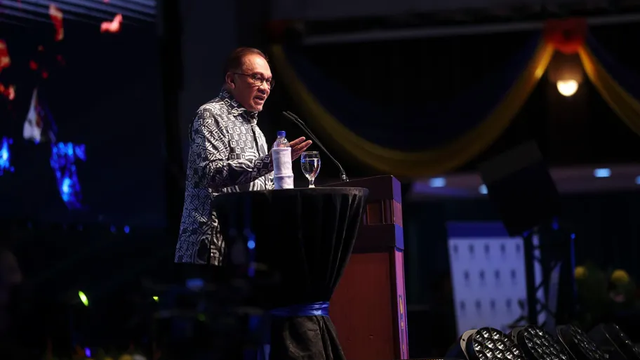SDSN Brings Global Perspectives to Malaysia’s Vision 2100
On January 22, 2024, the University of Malaya in Kuala Lumpur hosted the launch of the Global Intellectual Discourse 2024. Themed 'The Next 100 Years: Vision 2100 for Malaysia', this inaugural event aimed to bring together academics and leading experts to discuss and deliberate critical issues that the country will face in the next 100 years.
Prime Minister, Anwar Ibrahim, inaugurated the event by laying out the preamble for his Vision 2100 for Malaysia. He started by speaking about the need for transformation in line with fast-evolving global trends, through broader healthier intellectual discourse, and without the distractions of ongoing narrow discussions around race and religion. Matters of digital transformation, energy transition, and quality education ought to take center stage if the country is to develop sustainably. On education, he said the paltry performance of students in international assessments is a clear indicator that reform is needed. The budget allocated to national education is not translating into meaningful outcomes, and instead, huge allocations have to be made to infrastructural improvements, including 1 billion Malaysian Ringgit just to upgrade lavatories. He emphasized the gross inequality of access to quality education including preschools and the need for government preschools to have better facilities. He also encouraged universities to expand their programs to be more future-focused and to expand on areas such as artificial intelligence. Throughout his speech, he stressed was the centrality of addressing Malaysia's widening gaps between urban and rural and the rich and poor.
Teacher. Sachs then took the stage to deliver a lecture on “ASEAN to 2050 and 2100: Towards a Future of Sustainable Development.” The Sultan of Perak, His Royal Highness Sultan Nazrin Shah, attended the lecture and the subsequent forum. Teacher. Sachs started with the interconnectedness of four pillars of sustainable development: economic development, social inclusion, environmental sustainability, peace, and cooperation. He spoke about the coming economic convergence between the poorer regions and the richer ones that is conditional on the policies implemented by individual nations and regional bodies. He warned of the perils of emerging multipolarity amid the changing geopolitical landscape with the rise of East Asia and South Asia and the decline of the West.
A forum titled “Where is Malaysia Heading? - The Next Economic Frontier and Future of Malaysia in The Era of New Global Uncertainties” followed. Prof Sachs reiterated the dire necessity of educational, infrastructural, and technological cooperation, over isolation, between nations in the face of the New Cold War for the benefit of all peoples. Teacher. Jomo Kwame Sundaram of the Khazanah Research Institute spoke about how Malaysia could leverage its advantage in the field of photovoltaics and palm oil-based biodiesel. Prof Woo spoke about the importance of small and medium enterprises (SME) to Malaysia's economic growth and long-term sustainability. He lamented the loss of small and medium banks and financial institutions in the wake of the Asian Financial Crisis of 1997-8 and called for their return to allow channels for greater investment into the SME sector as the engine to free Malaysia from the middle-income trap.
Recordings of the event are available on the University of Malaya Facebook page ( Part 1 and Part 2 ).
